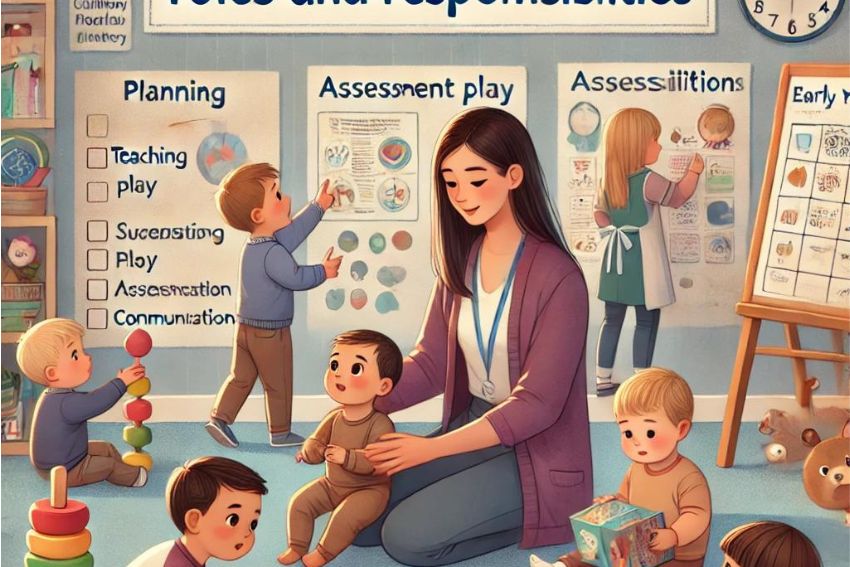- What is Business Studies GCSE?
- Let's Talk About The Subject Content for GCSE Business Studies
- What You Need To Know About GCSE Business Studies Exams
- How To Revise for GCSE Business Studies?
- Top 5 Books for Studying GCSE Business Studies
- Online Resources to Revise, Study, and Prepare for GCSE Business Studies
- What Comes Next?
- To Sum Up
GCSE Business Studies is an essential subject that offers students a glimpse into the world of commerce, entrepreneurship, and the economic forces shaping our daily lives. A part of the broader GCSE curriculum, this subject lays the foundation for understanding how businesses operate, make decisions, and impact society.
The importance of GCSE Business Studies cannot be overstated. It equips students with critical thinking, problem-solving, and decision-making skills that are invaluable not just in academic pursuits but also in real-world scenarios. Whether you’re looking to pursue a career in business, develop entrepreneurial aspirations, or simply understand the principles behind everyday economic activities, this subject is a stepping stone to success.
Scot Belsky once said: “It’s not about ideas. It’s about making ideas happen.” – and this quote resonates with business studies perfectly, because Business studies teaches the practical skills needed to turn concepts into action.
In this detailed guide, we aim to help students navigate GCSE Business Studies with ease. We’ll cover content, break down exam board specifications, and provide actionable revision tips to ensure success. By the end of this guide, you’ll have a clear understanding of what GCSE Business Studies entails and how to excel in it. So keep reading and find out everything you need to know about GCSE Business studies.
What is Business Studies GCSE?
GCSE Business Studies is a subject that introduces students to the key concepts, principles, and practices of running a business. It provides insight into how organisations function, from small start-ups to multinational corporations, and the challenges they face in an ever-changing economic landscape.
What I Learn in GCSE Business Studies?
In GCSE Business Studies, you’ll explore a wide range of topics that help you understand both the theoretical and practical aspects of business. Here’s a breakdown of what students typically learn:
| Topic | Details |
| Types of Businesses | Sole traders, partnerships, corporations. |
| Business Aims and Objectives | Understanding goals and how businesses measure success. |
| Customer Needs | Identifying and analysing customer requirements through market research. |
| Marketing Strategies | Pricing, promotion, distribution, and branding. |
| Basics of Finance | Calculating profit, managing costs, and budgeting. |
| Financial Documents | Balance sheets, income statements, and financial planning. |
| Operations Management | Production, supply chain management, and quality control. |
| Human Resources | Recruitment, training, employee motivation, and performance management. |
| Organisational Structures | Business hierarchies and internal communication. |
| External Influences | Economic, legal, and social factors affecting businesses. |
| Ethical Considerations | Sustainability, ethical practices, and corporate responsibility. |
| Entrepreneurship | Creating business plans, identifying risks, and developing ideas. |
Let’s discuss Those Topics:
The Basics of Business – Students start by exploring different types of businesses, such as small sole traders, partnerships, and large corporations. They learn about why businesses exist, what their goals are, and how they measure success, whether it’s through profit, customer satisfaction, or growth.
Marketing and Customers – Understanding customers is key to any business, and students learn how companies figure out what people want through market research. They also study how businesses create effective marketing strategies, from pricing products to running promotions and distributing goods.
Finance Made Simple – Money is at the heart of every business, and GCSE Business Studies makes finance less intimidating. Students learn the basics, like calculating profit, managing costs, and creating budgets. They also get introduced to financial documents like balance sheets and income statements.
How Things Get Made – This part of the course looks at how businesses produce goods and services. Students learn about supply chains, quality control, and how companies ensure they operate efficiently to meet customer demand.
Managing People – Employees are a big part of any business, and students explore how companies hire, train, and motivate their teams. They also look at how businesses are structured and how communication flows within organisations.
Dealing with Outside Factors – Businesses don’t exist in a bubble, and students learn about the external influences that affect them. These include the economy, legal requirements, social trends, and ethical issues like sustainability and fair trade.
Becoming an Entrepreneur – For those with big dreams, this subject offers a chance to understand what it takes to start and run a business. Students learn about creating business plans, identifying risks, and coming up with innovative ideas to solve problems or fill gaps in the market.
Let’s Talk About The Subject Content for GCSE Business Studies

The subject content for GCSE Business Studies is designed to give students a comprehensive understanding of the business world. It covers a range of topics that help students develop practical knowledge and analytical skills, preparing them for further studies and real-world applications. Here’s a detailed look at the subject content:
Business in the Real World
This topic introduces students to the fundamental concepts of business and why they exist. Key areas include:
The Purpose of Business: You’ll understand why businesses are created, such as providing goods and services or fulfilling a social need.
Types of Business Ownership: you’ll Explore sole traders, partnerships, private limited companies (Ltd), and public limited companies (Plc), and understanding the advantages and disadvantages of each.
Business Aims and Objectives: aims to teach you how businesses set goals like profit maximisation, growth, or social impact.
Stakeholders: you will know how to Identify individuals or groups affected by a business, such as employees, customers, and investors.
The External Environment: You’ll learn how to Analyse how factors like competition, technology, and economic conditions impact businesses.
Influences on Business
This section explores the external and internal factors that affect how businesses operate. It covers:
Technology in Business: Understanding the role of e-commerce, digital communication, and automation.
Ethics and the Environment: Analysing ethical considerations, sustainability, and environmental responsibility.
Economic Factors: Studying how inflation, unemployment, and interest rates influence businesses.
Globalisation: Examining the opportunities and challenges of operating in international markets.
Legislation: Understanding the laws that regulate businesses, such as consumer rights and employment laws.
Business Operations
This topic focuses on how businesses produce goods and services efficiently. Students learn about:
Production Methods: The differences between job, batch, and flow production.
Quality Assurance: Understanding how businesses maintain high standards in their products or services.
Supply Chain Management: Exploring how businesses manage suppliers and logistics.
Customer Service: Learning how businesses build relationships with customers and meet their expectations.
Human Resources
This section introduces the management of people within a business. Key areas include:
Recruitment and Selection: Understanding how businesses find and hire the right employees.
Training and Development: Exploring the importance of employee development for business success.
Motivation: Studying motivational theories and how businesses encourage productivity.
Organisational Structures: Analysing how businesses organise their workforce through hierarchies and communication systems.
Marketing
It is well known fact that marketing plays a vital role in the success of a business. This topic teaches students about:
- Market Research: Understanding how businesses identify customer needs and preferences.
- The Marketing Mix (4Ps):
- Product: Designing goods and services that meet customer needs.
- Price: Setting competitive and profitable prices.
- Place: Deciding how and where products will be sold.
- Promotion: Developing advertising and promotional strategies to attract customers.
- Target Markets: Learning how businesses segment and target specific customer groups.
Finance
Finance is crucial to the success of any business. This topic includes:
Sources of Finance: Understanding internal and external methods of raising capital, such as loans and retained profits.
Cash Flow Management: Learning how businesses manage income and expenses to avoid cash shortages.
Profit and Loss: Calculating revenue, costs, and profits to measure business performance.
Break-Even Analysis: Determining the sales volume needed to cover costs.
Financial Statements: Analysing balance sheets and income statements to assess financial health.
Why It Is Important To Understand Subject Content?
The subject content of GCSE Business Studies provides a well-rounded introduction to the key aspects of business operations and management. It equips you with:
Practical Skills: Such as analysing financial data and making informed business decisions.
Critical Thinking: Encouraging you to evaluate business challenges and propose creative solutions.
Real-World Knowledge: Helping you understand the world of business and its impact on society.
By covering these core areas, GCSE Business Studies prepares you not only for exams but also for future studies and careers in business-related fields.
What Is The Main Aim of GCSE Business Studies
The main aim of GCSE Business Studies is to provide students with a solid understanding of how businesses work in real life. It’s designed to help students think critically about the role of businesses in society, explore how decisions are made, and understand the impact of external factors like the economy and ethics. Here’s what the subject aims to achieve:
Understand Business Concepts: Students learn the fundamentals of business operations, from starting up a company to managing resources and making financial decisions.
Develop Analytical Skills: The course encourages students to analyse problems, evaluate solutions, and make informed decisions.
Encourage Critical Thinking: Students explore the challenges businesses face and think about creative ways to overcome them.
Introduce Entrepreneurship: The subject inspires entrepreneurial thinking by teaching students how to create business plans and identify risks and opportunities.
Foster Awareness of External Factors: Students learn how legal, economic, and social factors influence businesses and their decisions.
What You Need To Know About GCSE Business Studies Exams

The GCSE Business Studies exam is designed to assess students’ understanding of key business concepts, their ability to apply knowledge to real-world scenarios, and their critical thinking skills. Here’s a detailed overview of the exam specifications, including exam boards, format, marking distribution, and tips for success.
Exam Boards Offering GCSE Business Studies
GCSE Business Studies is offered by several exam boards in the UK, each with its own approach to content delivery, assessment style, and focus areas. Choosing the right exam board or understanding the specification for your board can make a big difference in how you prepare for the exams. Below is a detailed overview of the major exam boards offering GCSE Business Studies:
AQA (Assessment and Qualifications Alliance)
AQA is one of the most popular exam boards in the UK and offers a well-structured Business Studies GCSE.
Key Features:
Focuses on both theoretical knowledge and practical application. Uses real-world examples to make concepts relatable. Includes a wide range of topics, such as business operations, marketing, human resources, and finance.
Assessment Structure:
Two written exam papers, each lasting 1 hour 45 minutes, with a combination of multiple-choice, short-answer, and extended-response questions. Each paper accounts for 50% of the final grade.
Edexcel (Pearson)
Edexcel’s GCSE Business Studies course emphasises real-world business scenarios and encourages critical thinking.
Key Features: Topics include entrepreneurship, finance, marketing, and external influences. Strong focus on applying business concepts to real-life situations. Case studies are often based on real businesses, making the subject more engaging.
Assessment Structure: Two exam papers, each 1 hour 30 minutes long. Paper 1 focuses on “Investigating Small Businesses,” while Paper 2 is about “Building a Business.” Each paper is worth 50% of the total grade.
OCR (Oxford, Cambridge and RSA)
OCR provides a practical and analytical approach to GCSE Business Studies.
Key Features: Covers key areas like business activity, operations, marketing, finance, and external influences. Encourages students to develop problem-solving and decision-making skills. Balanced focus on theoretical understanding and practical application.
Assessment Structure: Two written exams, both 1 hour 30 minutes. Each paper includes multiple-choice, short-answer, and data-response questions. Equal weight is given to both papers, contributing 50% each to the final grade.
WJEC/Eduqas
WJEC/Eduqas provides a modern and engaging GCSE Business Studies specification, tailored for diverse learners.
Key Features: Topics include business activity, operations, finance, marketing, and external influences. Emphasises real-world examples and case studies to build analytical skills. Explores ethical and global issues in business, such as sustainability and globalisation.
Assessment Structure: Two written papers, each lasting 2 hours. Paper 1 focuses on “Business Dynamics,” while Paper 2 covers “Business Perceptions.” Both papers contribute equally to the final grade.
As you can see, each exam board’s GCSE Business Studies course shares core topics but differs in emphasis, question style, and case study integration. When preparing, students should:
- Familiarise themselves with the specific topics and assessment structure of their exam board.
- Use past papers from their exam board to practise answering questions in the correct format.
- Pay attention to the weighting of different sections to prioritise their revision effectively.
Remember, understanding your exam board’s specification is the first step toward excelling in GCSE Business Studies!
Exam Format For Business Studies GCSE
The GCSE Business Studies exam typically consists of two written papers. While the exact structure depends on the exam board, the general format includes:
Paper 1: Influences of Operations and Human Resources on Business Activity
Covers topics such as operations management, human resources, and business structure. It Includes questions ranging from multiple-choice to extended responses.
Paper 2: Influences of Marketing and Finance on Business Activity
Focuses on marketing, finance, and external influences on businesses. Questions require application of knowledge to real-world business scenarios.
What Kind of Questions I Need To Answer For Business Studies GCSE?
Multiple-choice questions: Test basic knowledge of business concepts.
Short-answer questions: Require concise explanations or calculations.
Case-study-based questions: Involve applying knowledge to real or hypothetical business scenarios.
Extended-response questions: Assess critical thinking, analysis, and evaluation skills.
How Marks Are Distributed
The marking scheme generally follows this breakdown:
Knowledge and Understanding (AO1): ~30-40% of marks. Students must demonstrate a clear grasp of business terminology, concepts, and theories.
Application (AO2): ~20-30% of marks. Marks are awarded for applying knowledge to real-world or case study scenarios.
Analysis (AO3): ~20% of marks. Students need to explain and analyse business decisions and their implications.
Evaluation (AO4): ~10-20% of marks. Requires forming well-structured arguments, making judgments, and supporting conclusions with evidence.
On What You Should Pay Attention To?
Time Management – Allocate time wisely for each question type. Spend less time on multiple-choice questions and more on extended responses.
Case Studies – Read case study information carefully and underline key details. Questions often require direct references to the provided business context.
Calculations and Data Interpretation – Practice calculations for profit, break-even, and cash flow. Be comfortable interpreting charts, graphs, and financial data.
Command Words – Understand what the question is asking. For example, “explain” requires reasoning, while “evaluate” requires forming a judgment with evidence.
Structure in Extended Responses – Use clear paragraphs with a logical flow. For evaluations, include a balanced argument and conclude with a justified decision.
Revision of Key Topics – Pay special attention to topics like marketing mix, sources of finance, and external influences, as these often feature in exams.
Real-World Examples – Enhance answers by referencing actual businesses or recent events when appropriate.
The GCSE Business Studies exam is both an opportunity and a challenge. Success lies in understanding the content, practising past papers, and honing analytical skills. By focusing on key areas like time management, command words, and case study application, you can maximise your performance. Whether through independent study or the help of online GCSE Business studies tutors, preparation is the key to achieving top marks!
How To Revise for GCSE Business Studies?

It is a well known fact that effective revision is key to excelling in GCSE Business Studies. This subject not only tests your knowledge but also your ability to apply it to real-world scenarios, analyse business situations, and evaluate decisions. Here are detailed tips to help you prepare and perform your best:
Top Tips for GCSE Business Studies Revision
Revising for GCSE Business Studies doesn’t have to be overwhelming. With the right approach, you can feel confident and well-prepared. Here’s how to make the most of your revision time:
Understand the Specification
Start by reviewing your exam board’s specification (AQA, Edexcel, OCR, or WJEC). This will show you exactly what topics you need to cover and how the exams are structured. Knowing what’s expected will keep you focused and on track.
Practise with Past Papers
Using past papers is one of the best ways to prepare. They help you get familiar with the types of questions you’ll face, the exam format, and the marking scheme. Set a timer and practise under exam conditions, then check your answers against the mark scheme to see where you can improve. Here is a list for GCSE business studies past papers:
- Edexcel GCSE Business: Past Papers
- AQA GCSE Business past Papers
- OCR GCSE Business Past Papers
- WJEC GCSE Business Past Papers
Master Key Terms and Concepts
Business Studies is full of important terminology like “market segmentation” and “cash flow.” Use flashcards to memorise definitions, and practice applying these concepts to real-life business scenarios.
Brush Up on Calculations
Make sure you’re confident with key formulas like profit, revenue, and break-even. Practise solving these repeatedly and learn to interpret financial data, such as charts or tables, so you can ace calculation questions in the exam.
Focus on Case Studies
Case studies are at the heart of GCSE Business Studies. Practise identifying key details and linking them to what you’ve learned. Real-life examples of businesses are great for understanding how theory works in practice.
Use Online Resources and Tutors
There are plenty of online resources like videos, quizzes, and notes that can simplify complex topics. For extra help, consider working with an online tutor who can provide personalised guidance and feedback to help you tackle tricky areas.
Plan Your Extended Answers
For longer questions, structure your response clearly:
- Start with a short introduction.
- Use detailed examples and analysis in the main body.
- End with a well-reasoned conclusion.
This approach will help you organise your thoughts and make your answers stand out.
Stay Consistent and Balanced
Spread your revision out over time and balance it between theoretical topics (like marketing or finance) and practical skills (like calculations or decision-making). Don’t forget to schedule regular breaks to stay refreshed and focused.
Top 5 Books for Studying GCSE Business Studies
Here’s a list of highly recommended books to help you excel in GCSE Business Studies:
| Book Title | Book Title | Why It’s Great |
| AQA GCSE Business Studies: Student Book | Malcolm Surridge | Tailored for AQA, includes clear explanations, case studies, and exam-style questions for confidence. |
| Edexcel GCSE (9-1) Business, Second Edition | Ian Marcouse | Comprehensive guide for Edexcel with engaging examples, detailed explanations, and revision tips. |
| My Revision Notes: AQA GCSE (9-1) Business | Neil James | Perfect for quick revision, offering summaries, key terms, and practice questions. |
| CGP GCSE Business Studies Revision Guide | CGP Books | Student-friendly language, humour, clear summaries, diagrams, and practice questions for all boards. |
| WJEC/Eduqas GCSE Business | Malcolm Surridge and Andrew Gillespie | Written for WJEC/Eduqas, it provides case studies, topic coverage, and practice activities. |
Additional Books to Help Students Excel in GCSE Business Studies
Beyond standard textbooks, there are some excellent supplementary books that provide deeper insights, practical examples, and effective revision tools for GCSE Business Studies. Here are some additional recommendations:
| Book Title | Author/Publisher | Why It’s Great |
| Business for Beginners: From Start-Up to Success | Frances Tophill | Simplifies essential business concepts with engaging examples and real-world insights. |
| How I Made It: 40 Successful Entrepreneurs Reveal How They Made Millions | Rachel Bridge | Inspires students with real-life entrepreneurial stories and practical examples of business success. |
| GCSE Business Studies Workbook (CGP) | CGP Books | Provides practice questions and exercises that complement the CGP revision guide for all exam boards. |
| The Business Book: Big Ideas Simply Explained | DK | Uses visual guides and simplified explanations to make complex business theories easier to grasp. |
| Revise Edexcel GCSE (9-1) Business Revision Guide | Pearson | Tailored for Edexcel, offering summaries, key points, and checklists for focused revision. |
These books are aligned with the major exam boards and provide the tools you need to understand the subject content, practise key skills, and prepare effectively for exams. Whether you’re just starting or revising, these resources will help you succeed.
Online Resources to Revise, Study, and Prepare for GCSE Business Studies
Here’s a list of recommended YouTube channels, apps, websites, and other online tools that can help students excel in GCSE Business Studies:
YouTube Channels
Taking The Biz on YouTube Humorous and engaging videos covering GCSE and A-Level Business topics with plenty of exam tips.
Apps
- Quizlet Offers pre-made flashcards and quizzes for GCSE Business Studies topics, or students can create their own sets.
- Gojimo Provides quizzes and topic summaries for GCSE Business Studies, helping students test their knowledge on the go.
- Seneca Learning Interactive revision platform with engaging quizzes and explanations aligned to exam board specifications.
- BBC Bitesize App Offers topic-by-topic revision notes, videos, and quizzes for GCSE Business Studies.
How These Resources Help
These tools and platforms are tailored to help you to break down complex topics into manageable sections and practice exam-style questions using past papers and quizzes. Online recourses will help you to learn through interactive, visual and engaging content, which will boost your confidence and motivation.
By combining these resources with a structured revision plan, GCSE Business Studies students can maximise their potential and feel confident on exam day!
What Comes Next?
before choosing any GCSE studies, it is important for enyone to have a vision for what those study would bring you for future. So, that why we need to discuss the progression after GCSE Business Studies. GCSE Business Studies opens the door to several exciting opportunities for further education and career development:
- A-Level Business Studies: Many students progress to study business at A-Level, diving deeper into the concepts they’ve learned.
- Economics or Accounting: Students may explore related fields like economics, accounting, or finance at A-Level or beyond.
- Vocational Courses: Practical courses like BTECs in business can be a great next step for students looking for hands-on learning.
- International Baccalaureate (IB): Students looking for a more globally recognised qualification might consider the IB Diploma Programme, which offers Business Management as one of its subject options within a comprehensive curriculum.
- Entrepreneurial Ventures: The knowledge gained in this course equips students with the confidence to explore entrepreneurship or small business ventures.
- Careers in Business: GCSE Business Studies provides a foundation for careers in marketing, management, finance, and other business-related fields.
This subject not only builds skills for future studies but also offers practical knowledge that you can apply in everyday life, whether managing personal finances or understanding the business world.
To Sum Up
GCSE Business Studies is an excellent subject that introduces students to the world of business, covering essential topics like marketing, finance, human resources, and operations. It provides a strong foundation for further studies, practical knowledge for real-world applications, and transferable skills like critical thinking and problem-solving.
While some aspects, such as understanding key terms, calculations, and case studies, may seem challenging, consistent revision and practice can make a huge difference. Resources like past papers, online tools, and real-world examples can enhance preparation.
For personalized guidance, our online business studies GCSE tutors can be invaluable. They offer tailored support, clarify difficult concepts, and help students approach the exams with confidence. With the right resources and dedication, GCSE Business Studies can be both manageable and rewarding, opening doors to exciting career and education opportunities.
FAQs:
Do I Need Prior Learning for GCSE Business Studies?
You’re not required prior learning is required for GCSE Business Studies. It’s designed to be accessible for all students, regardless of their background or previous knowledge. The course starts with the basics and gradually builds up, making it suitable for anyone with an interest in business.
Is Business Studies GCSE Easy?
The difficulty of Business Studies GCSE depends on your interests and strengths:
- Why It Might Be Easy: If you enjoy learning about real-world businesses, finance, and marketing, the subject can feel engaging and relatable. The practical nature of case studies also helps some students grasp the concepts more easily.
- Why It Might Be Challenging: It requires understanding key terminology, applying concepts to scenarios, and practising calculations (e.g., break-even, profit). Extended-answer questions may also require critical thinking and structured responses.
With consistent revision and practice, many students find Business Studies GCSE manageable.
What Level Is GCSE Business Studies?
GCSE Business Studies is a Level 2 qualification, equivalent to other GCSEs in the UK.
It is assessed at two tiers: Grades 9–1 (highest to lowest), with 9 being the top grade.
It typically follows Level 1 (Key Stage 3) and prepares students for post-16 qualifications like A-Levels or Level 3 BTECs.
What Is in Business Studies GCSE?
GCSE Business Studies covers topics like business types, marketing, finance, operations management, human resources, and external influences. It combines theory with practical applications through real-world case studies.
What Are Career Opportunities for Business Studies?
It leads to further studies like A-Level Business or vocational BTECs and careers in marketing, finance, HR, or entrepreneurship. The subject also builds transferable skills valued in many industries.
Other Articles You May Be Interested in
What Are The Hardest GCSE Subjects?
GCSE Business Studies Past Papers
GCSE Grade Boundaries Explained
Navigating Year 10: Setting Goals and Preparing for GCSEs








